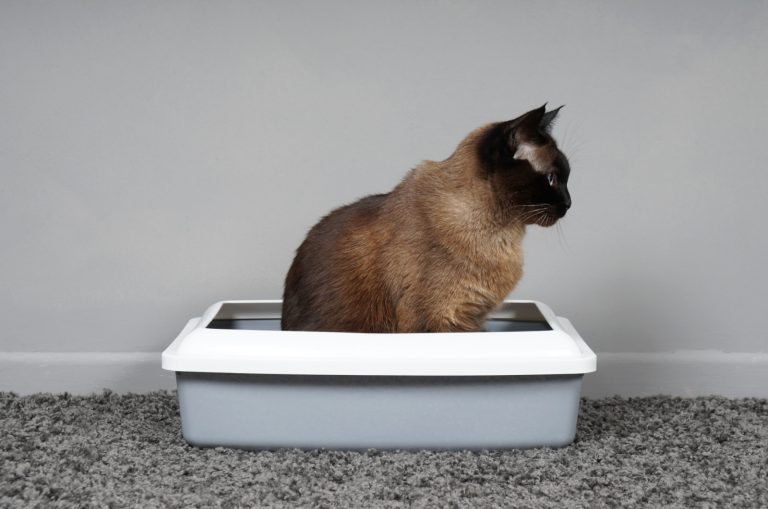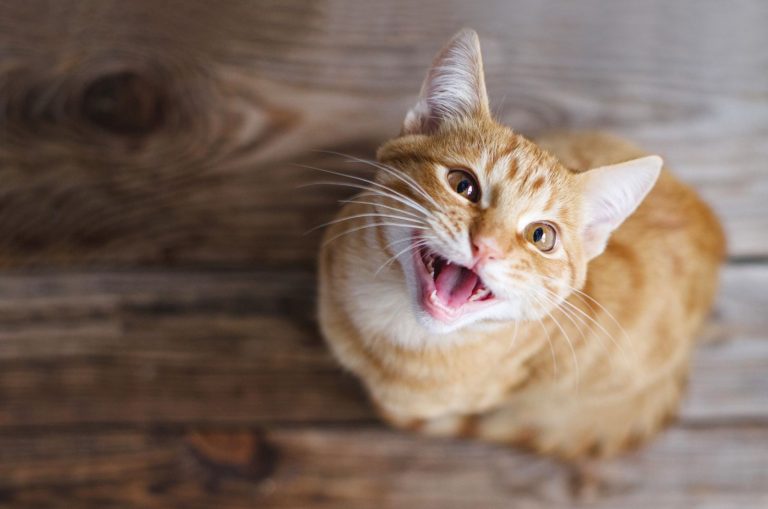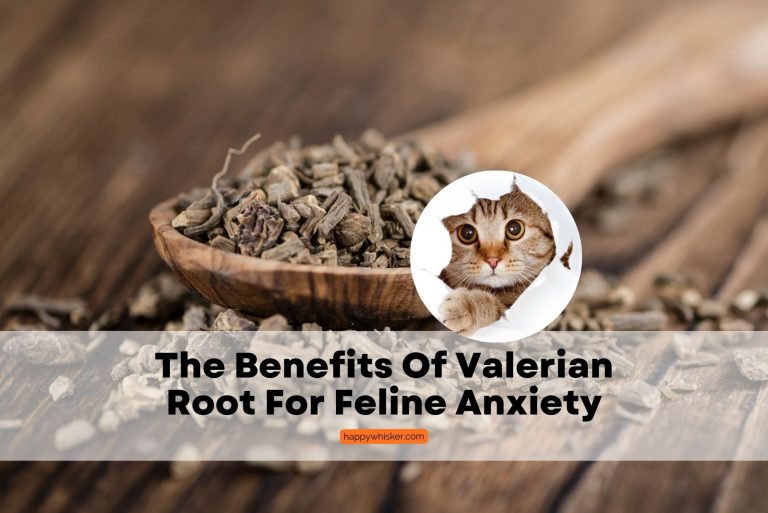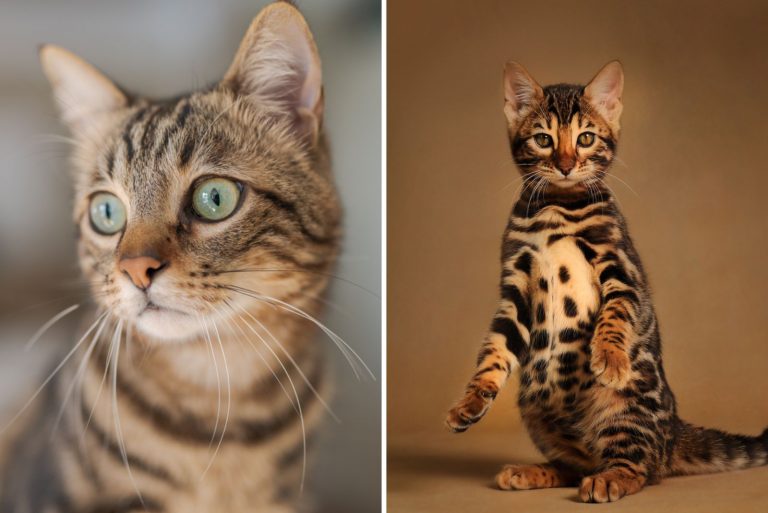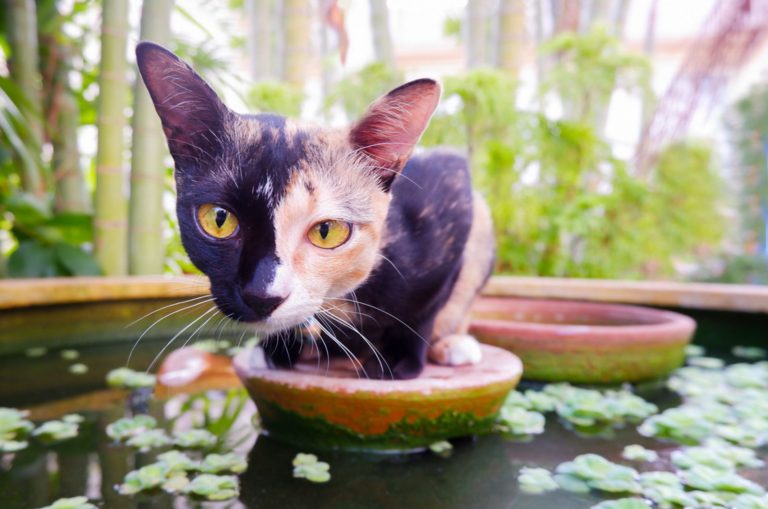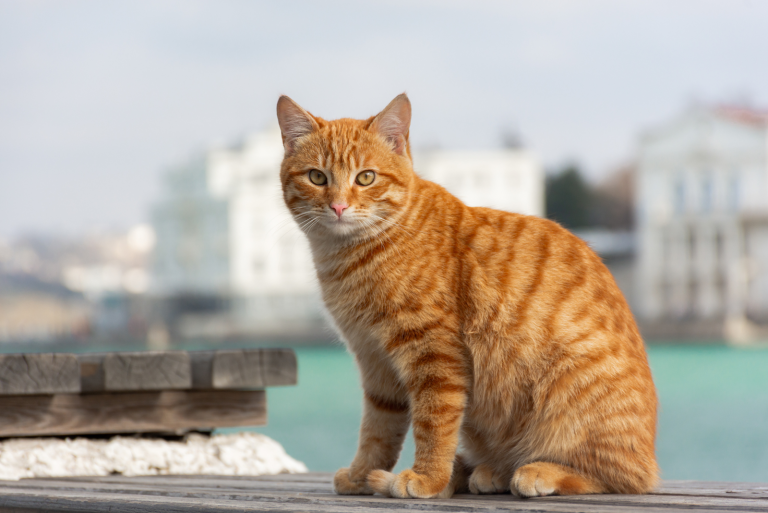Top 9 Natural Home Remedy Antibiotics For Cats: User Guide
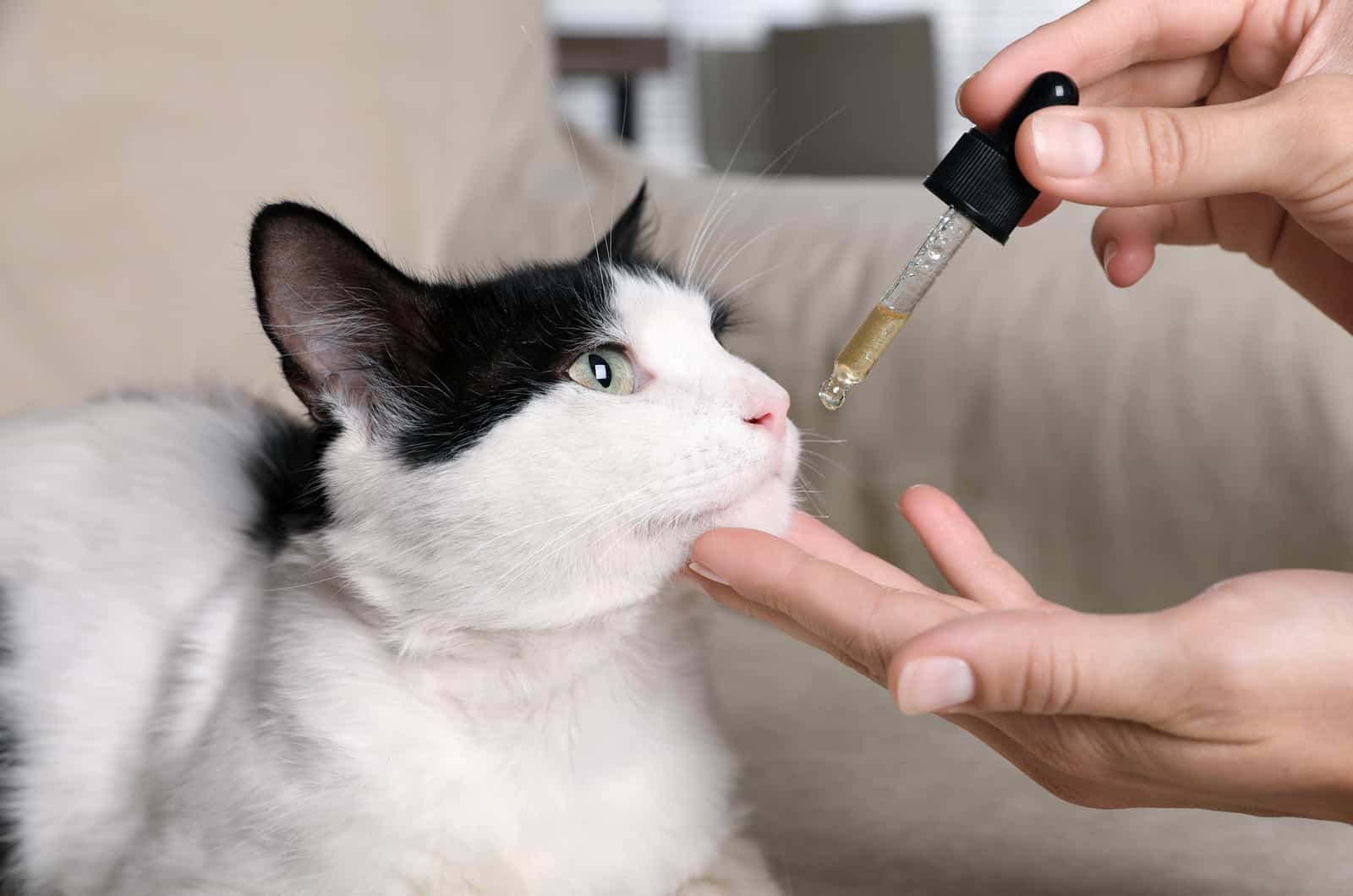
You probably already know what antibiotics are – chemicals that efficiently kill bacteria and are prescribed to us (and our pets) by a doctor (or veterinarian).
They are one of the most important medicines in the world and without them the world would be a very different place.
You might have a few natural home remedy antibiotics for cats in your own pantry and you might not even know it!
Items such as honey, ginger and chamomile are just a few examples of natural antibiotics that have amazing health benefits for your pet (and you).
These natural remedies have a lot of amazing benefits such as anti-inflammatory, anti-bacterial, anti-microbial, antiseptic, and antibiotic properties.
Many home remedies offer a wide range of health benefits for both people and our pets. The substances I have listed below are proven to have natural antibiotic properties, so continue reading to find out how they can help your cat feel better!
9 Amazing Natural Home Remedy Antibiotics For Cats
The following home remedies work wonders for the immune system. Pet owners find them extremely useful in fighting off bacterial infections naturally, so let’s get right into it!
1. Honey
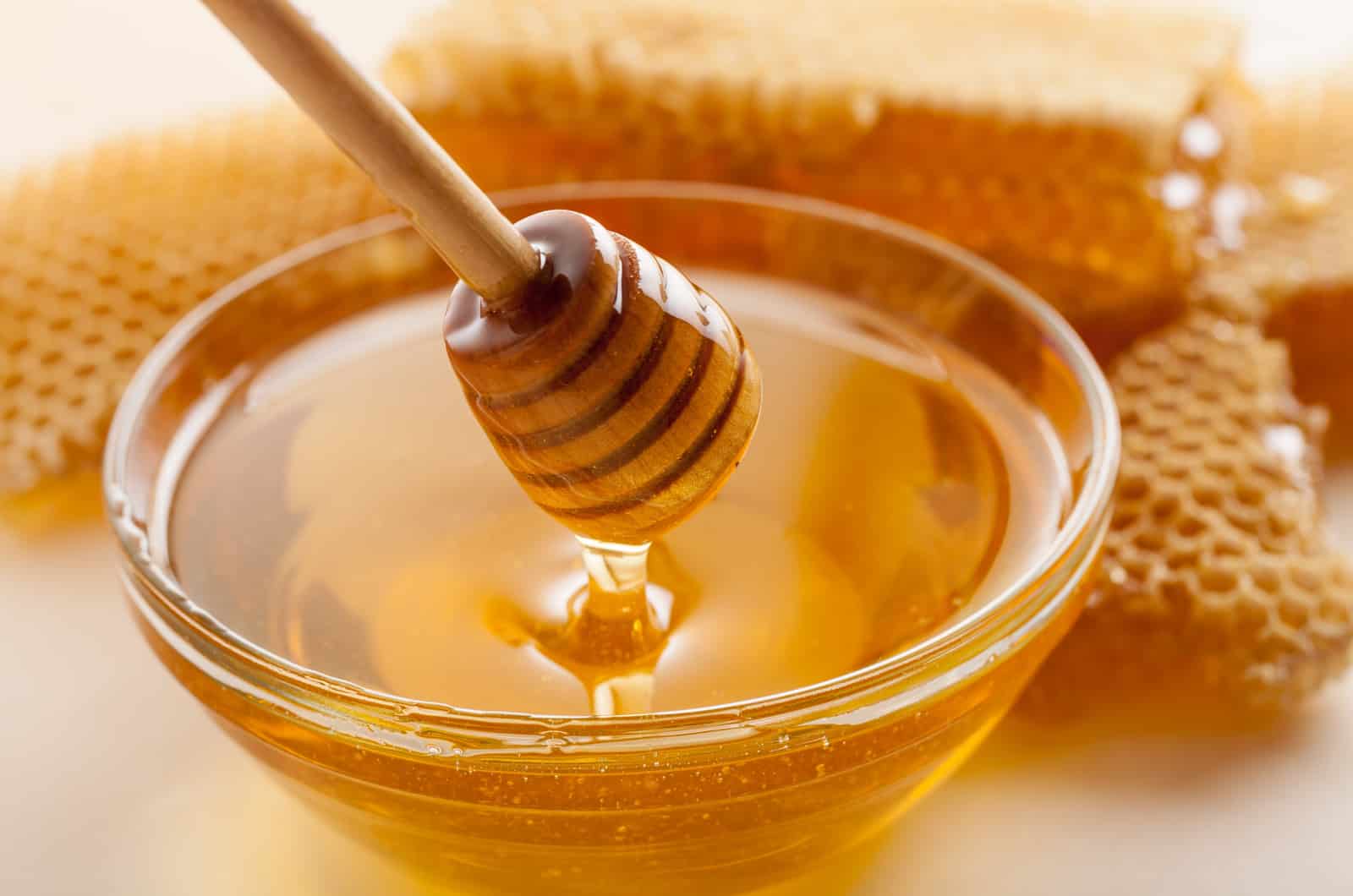
The benefits of honey have been known for thousands of years now. Honey’s antimicrobial powers and wound-healing properties have been utilized by humans since ancient times.
Regular honey has antibacterial power due to its enzymes producing hydrogen peroxide. But one type of honey, called manuka honey, has antibacterial properties even without hydrogen peroxide production.
Manuka honey has many medicinal properties and is proven to be effective against:
🐾 Escherichia coli
🐾 Salmonella typhimurium
🐾 Enterobacter aerogenes
🐾 Staphylococcus aureus
There are even reports of honey being efficient against MRSA (“the superbug”) – currently the most antibiotic-resistant bacteria we know.
When Is It Okay To Give My Cat Honey?
You can give honey to your cat in the following cases:
🐾 when your cat has a sore throat
🐾 when your cat has allergies
Sore throat is commonly caused by bacteria, so honey and its antibacterial properties do come in handy. Humans take honey for the exact same reason.
On the other hand, honey also helps to relieve some allergy symptoms because it suppresses the over-reactive response of the immune system that causes allergic reactions.
How Do You Give Honey To Your Cat?
If you’ve decided to give your cat honey, make sure to use raw honey (processed honey does not carry the same benefits). How much should you give? You should give your cat a very small amount of honey – half a teaspoon and no more. Remember, this is a daily dose.
What To Be Careful About
Larger amounts of honey are not good for cats, despite the benefits this home remedy carries. Do not give your cat more than the recommended amount. Also, do not make it a regular part of your cat’s daily diet. It should only be given occasionally, when your kitty is sick.
2. Bee Propolis
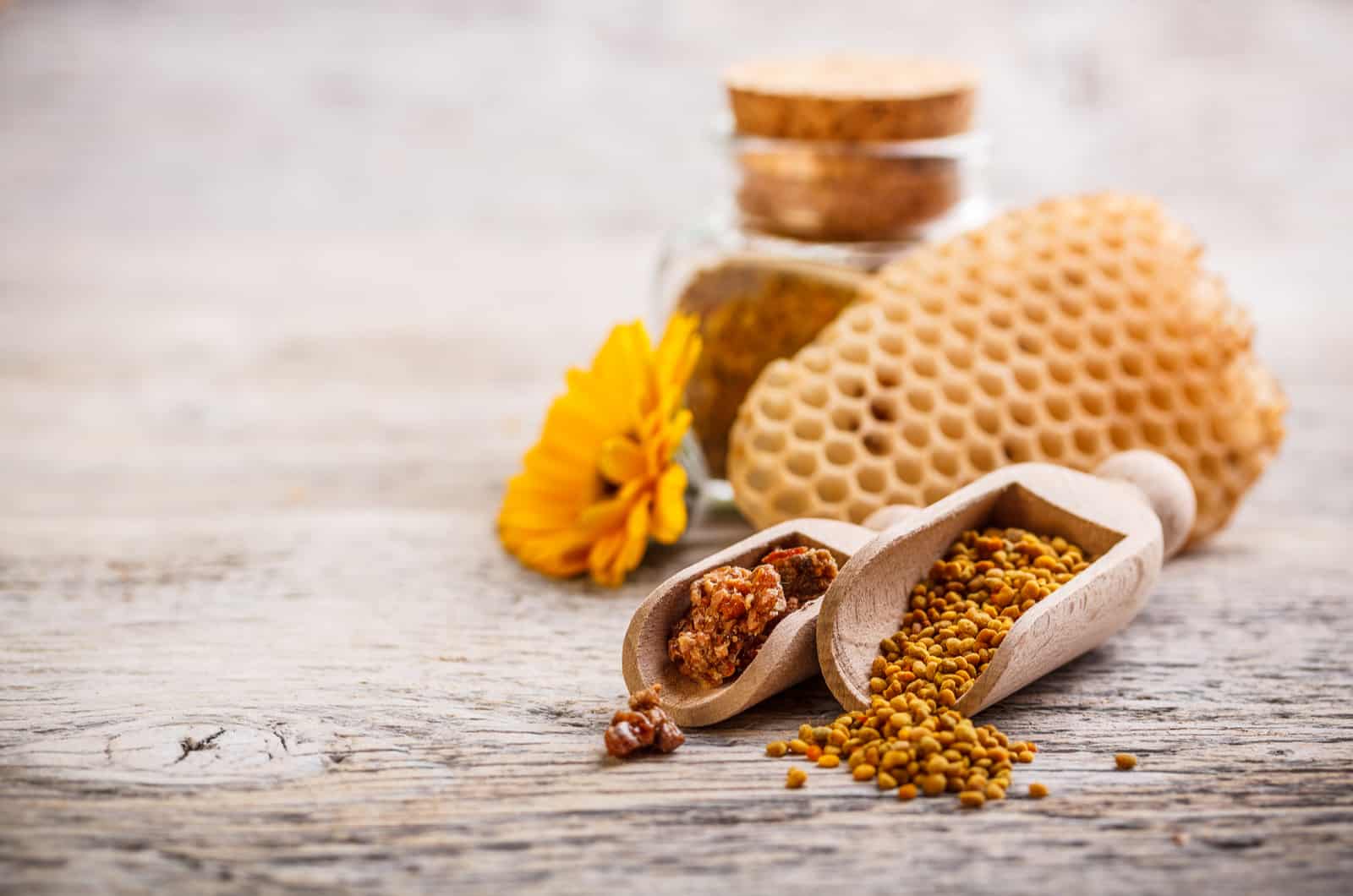
Propolis is a substance that offers many health benefits because it:
🐾 is anti-inflammatory
🐾 is antibacterial
🐾 is antifungal
🐾 prevents tumor formation
🐾 regulates the immune system
🐾 heals wounds
It is made by bees and it is composed of beeswax, bee saliva, and plant and tree material. It contains phenols (antiseptics), amino acids, and fatty acids.
How Do You Give It To Your Pet?
Bee propolis can be found in the form of capsules, liquid, and powder. You will probably have to get this from a pharmacy or online in the form of a supplement. Even though instructions will be written on the container, one capsule or a few drops are just enough. In this case, small amounts work wonders, while larger amounts might be harmful.
3. Echinacea/ Coneflower

Echinacea is a genus of herbs that is amazing for supporting the immune system and reducing inflammation in both humans and cats. This genus has 10 species that are otherwise known as coneflowers.
Echinacea is good for:
🐾 improving immunity (beneficial if your cat has a cold, or even to prevent a cold)
🐾 regulating blood sugar levels
🐾 reducing inflammation thanks to its antibacterial properties
🐾 some say it even has anti-cancer properties
All parts of the plant (the root, stem, and flower) are natural remedies, but the root carries the most health benefits. Native Americans even used it to heal burns by placing the herbs on the wounded skin.
How Do You Give It To Your Pet?
This herb is added to hot water and tea infusion is made. You can add this tea to your cat’s water.
4. Ginger

Ginger is a plant, and the root is commonly used as a spice and as a natural remedy.
People have been using it for thousands of years now, all because of the many health benefits ginger root carries. Some characteristics of ginger include:
🐾 it is antibacterial
🐾 it is anti-inflammatory
🐾 it contains antioxidants (may help prevent arthritis)
🐾 it’s good for nausea
🐾 it prevents vomiting
🐾 it can calm an upset stomach
🐾 it’s good for cats that get carsick
How Do You Give It To Your Cat?
Your cat can have ginger in the form of a herbal tea or tincture, capsule, ginger root extract, tablet, or a powder. Fermented ginger is said to be an excellent probiotic as well.
It is recommended to mix it with cat food, but only use very small amounts. One tablespoon of ginger tea is enough. If you’re using fresh ginger, use a tiny amount and mix it with your cat’s food.
When it comes to ginger extract, only use a drop or two. If using ginger capsules, read the instructions as this will give you the dosage guidelines for your pet.
What To Be Careful About
It is not recommended for cats to have ginger on an empty stomach, as this can cause irritation and discomfort.
Also, too much ginger is also known to cause the same effect, so don’t consider ginger as part of your cat’s regular daily diet. Give it only once or twice a day, only when needed, and discontinue after 3 or 4 days.
5. Goldenseal
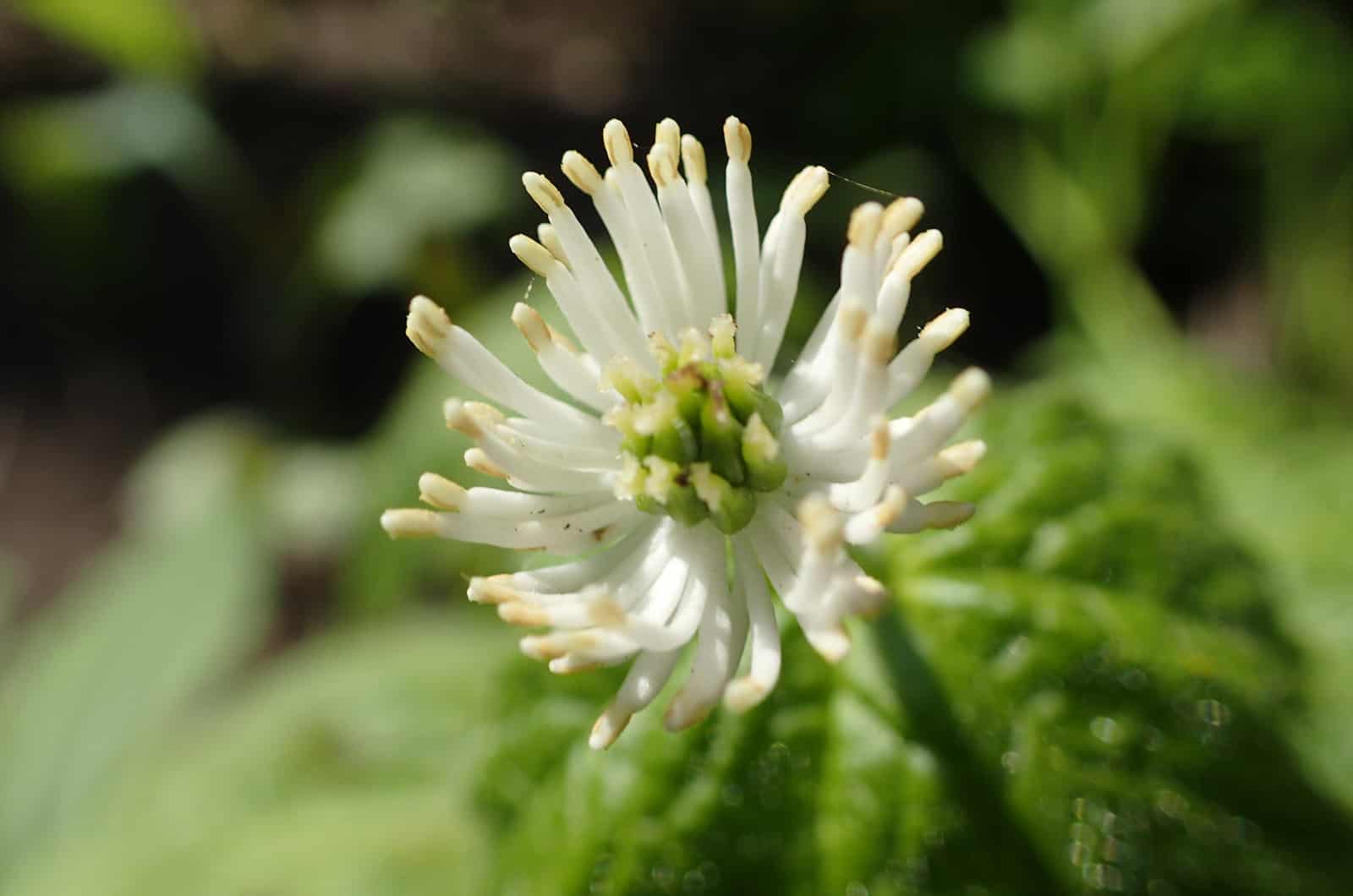
Goldenseal is a herb with a characteristic yellow/orange root, earning itself the name “orangeroot”.
Goldenseal has amazing anti-inflammatory and antibacterial properties that have been used by people for a very long time. It is a disinfectant and an anti-catarrhal (prevents inflammation of the mucous membrane that lines the airways).
Goldenseal’s antibiotic properties can be attributed to alkaloids such as berberine, canadine, and hydrastine. The most notable alkaloid in goldenseal is berberine. Berberine is known to kill many types of bacteria and fungi. Because of that, it is good at preventing and treating some mild bacterial infections.
How Do You Give It To Your Pet?
Goldenseal can be used for your pet’s wounds. It can be applied topically on the wounds due to its antibacterial properties. Goldenseal can also be used as a powder or in a tea.
There are also diet supplements in the form of oils that you can give to your cat, but make sure to use a drop or two only and always follow dosage guidelines on the packaging.
6. Turmeric

Turmeric is a plant and its roots are used to make the famous yellow powder spice. Many people use the terms turmeric and curcumin interchangeably, but that’s a common mistake. Curcumin is a very powerful component of turmeric.
Curcumin has been in use for centuries now due to its amazing power of reducing swelling and inflammation. Curcumin is amazing for chronic inflammatory conditions such as arthritis. It also has antioxidant and, some claim, even anti-cancer properties.
How Do You Give It To Your Pet?
The regular turmeric spice from your supermarket does not offer all of the benefits associated with curcumin. If you want your kitty to benefit from this substance, it’s best to get a turmeric supplement.
7. Chamomile

Chamomile is an extremely important medicinal herb that I am sure you’ve used at least once in your life. Its many health benefits were known in ancient Rome, Egypt, and Greece.
Some characteristics and benefits chamomile that offers include:
🐾 and antifungal properties
🐾 anti-inflammatory properties
🐾 good for wounded skin
🐾 good for relieving allergy symptoms
🐾 has soothing properties and is good for anxiety
How Do You Give It To Your Pet?
The best way to give your pet chamomile is in the form of a tea. Cat owners, remember – small amounts is all your pet needs! Half a teaspoon of tea can be mixed into your cat’s food or given directly into your cat’s mouth.
8. Aloe Vera

I am sure you are aware of the benefits associated with the aloe vera plant, but did you know aloe vera can be useful for your pet too?
Some of the health benefits are:
🐾 antibacterial and antiinflammatory properties
🐾 contains antioxidants
🐾 soothes the skin (for example after an insect bite)
🐾 soothing for burns
🐾 good for kidney stones
🐾 good for digestion
How Do You Give It To Your Cat?
Aloe vera can be used topically to treat your pet’s wounds or any type of skin irritation such as itching. It is recommended to use aloe vera gel that you can get from a pharmacy or directly from the plant. This holistic tip has been in use for thousands of years now.
Aloe vera gel is for external use, while aloe vera juice is for internal use. It is a common component of some cat food supplements and oils as well.
What To Be Careful About
Long-term use is not recommended. Also, only the aloe vera gel is safe for your cat. It should not be consumed. If your cat eats the outer leaves or the latex of the plant, it can be potentially very dangerous. Aloe vera gel is the safe part of the plant,
9. Apple Cider Vinegar

Apple cider vinegar is made from fermented apples. It is commonly used in salad dressings and marinades, as I’m sure you already know and have likely used it.
It contains organic acids and a lot of vitamins and minerals, such as the vitamins B1, B2, B6, vitamin C, sodium, potassium, calcium, and many others.
Apple cider vinegar is good for:
🐾 killing some harmful bacteria
🐾 helping with constipation
🐾 treating feline urinary tract infection (UTI)
🐾 treating respiratory tract infection
Apple cider vinegar is known to prevent and heal urinary tract infection by restoring and maintaining the proper pH balance
How Do You Give It To Your Pet?
You should use only organic apple cider vinegar.
You can mix half a teaspoon of apple cider vinegar in water or broth (there’s a high chance your cat might not like the taste of the vinegar and water).
Some suggest mixing warm water and apple cider vinegar and applying it to your cat’s coat. If you do this, make sure to completely avoid the face area. Then when your cat is grooming, it will ingest the apple cider vinegar.
The Benefits Of Using Natural Home Remedy Antibiotics For Cats
All of us have used antibiotics at least once in our lives, so we know what they do – they efficiently kill the bacteria that’s making us really sick. You might be wondering why I emphasized bacteria and being really sick?!
Well, it’s very important to say that antibiotics only kill bacteria and not viruses. It is also important to remember that antibiotics are not used for minor health issues, only for bacterial infections that are really hard to get rid of.
Considering how powerful prescribed antibiotics are, there are bound to be some side-effects.
Natural home remedy antibiotics for cats have the following benefits, just like prescribed antibiotics:
🐾 antibacterial
🐾 anti-inflammatory
🐾 antiseptic
However, natural antibiotics are different from prescribed antibiotics because they:
🐾 don’t cause side-effects such as vomiting, bloating, and diarrhea
🐾 don’t kill off the “good bacteria” like prescribed antibiotics do
🐾 will not lead to antibiotic resistance
However, natural antibiotics are not as efficient as the prescribed ones. In cases of serious infections, prescribed antibiotics need to be used.
Natural ones can be of help, but will not actually treat a serious or life-threatening infection.
Suggested: 10 Must-Try Home Remedies For A Bloated Cat Or Kitten
When Are Antibiotics Needed?
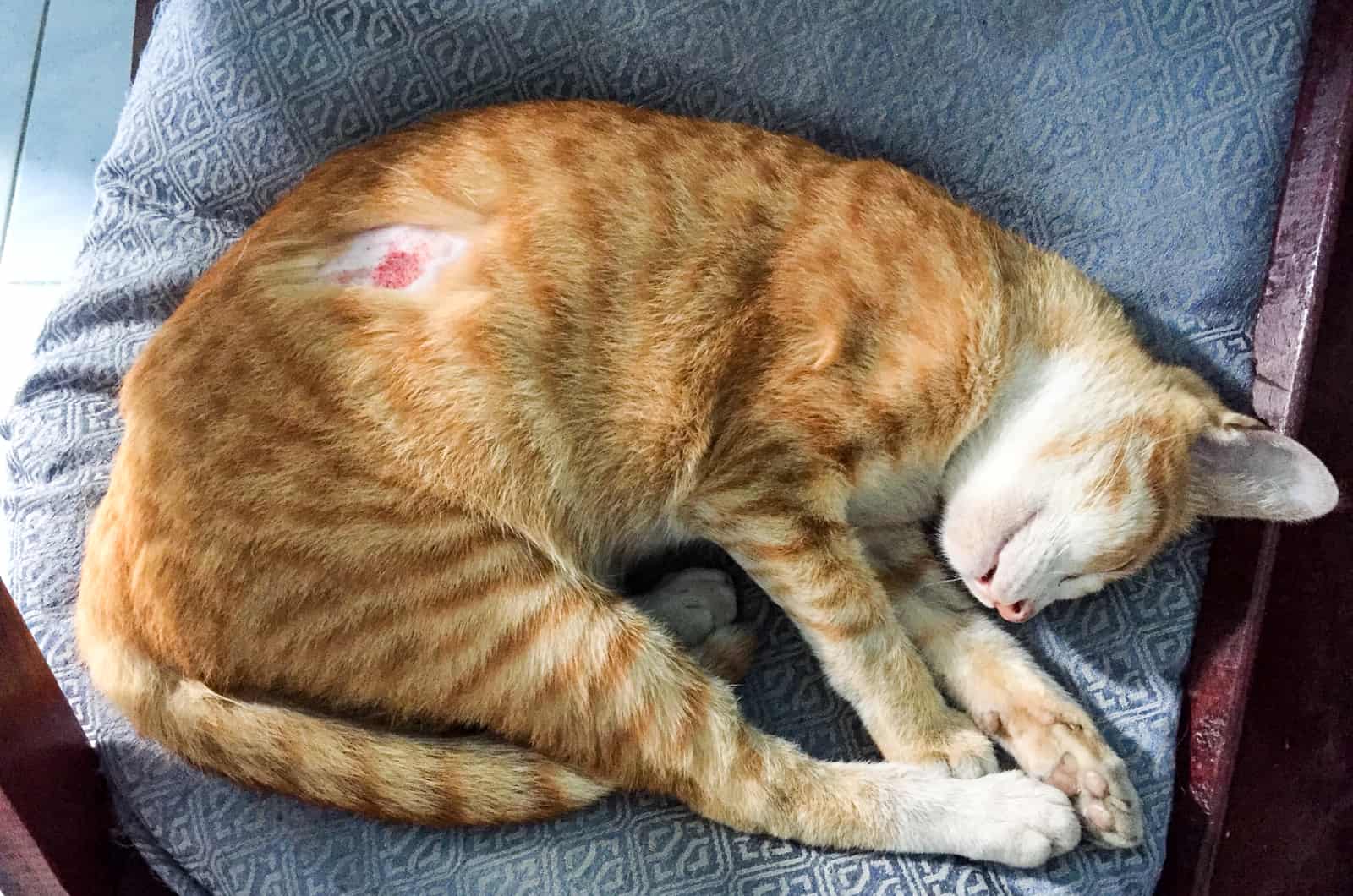
First, let’s answer one very important question: Does every bacterial infection need antibiotics as treatment? No – not every bacterial infection needs antibiotic treatment!
There are bacterial infections that will go away on their own without the use of antibiotics. In these cases, which are not rare, the only treatment required is to relieve the symptoms and monitor the cat’s condition while the cat’s body fights the infection.
Antibiotics are used only for serious bacterial infections that would cause a lot of harm if left untreated.
Natural remedies that have antibiotic properties are beneficial, but not in cases of life-threatening infections. They are used only to aid in getting rid of minor health issues, but are nevertheless very useful.
For example, you would not use honey to treat your cat’s serious upper respiratory infection, right? However, if your cat only has a cough, honey is a good symptom-relieving home remedy.
How Do Antibiotics Work?
What disinfectants do for external surfaces (such as your hands), an antibiotic does on the inside of your body. They both efficiently kill unwanted microorganisms – bacteria.
So what is the antibiotic’s mode of action against bacterial microorganisms?
In order to destroy infection, antibiotics:
🐾 damage the bacteria’s cell wall, causing the underlying membrane to burst and the bacteria then dies as a result.
🐾 prevent bacterial multiplication, so their numbers don’t grow and can only decrease.
As you can see, antibiotics are specifically designed to destroy bacteria. Many people make the mistake of using antibiotics for viral infections even though they are ineffective against viruses.
6 Cat Health Issues That Might Require Antibiotics
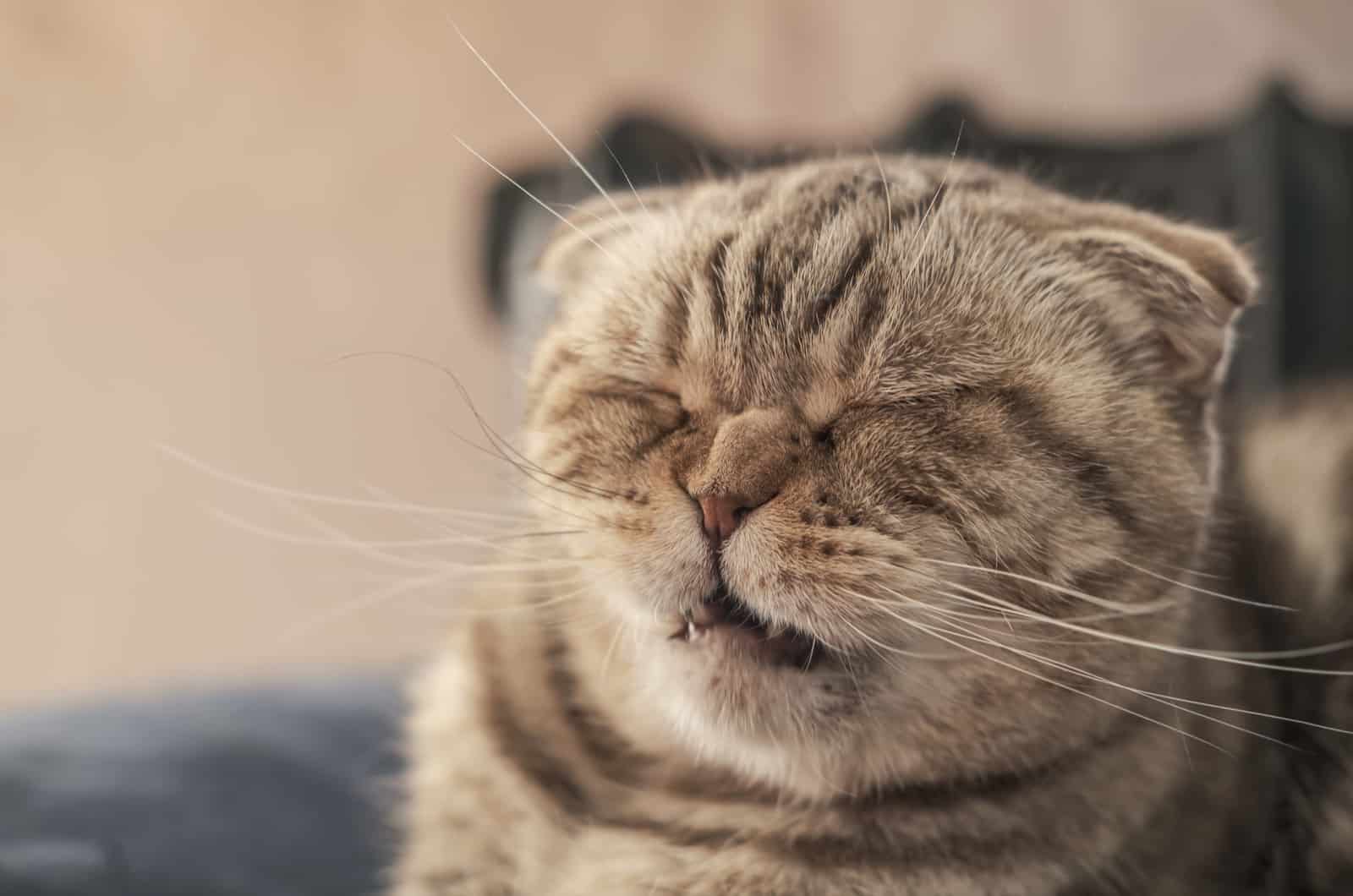
Antibiotics are medicines that have been specifically developed to kill bacteria. While not all bacterial infections need antibiotics in order for your cat to get healthy again, some infections can only be fought by antibiotics.
Some examples of health issues where antibiotics might be needed include:
1. Upper Respiratory Infection
Feline upper respiratory infection has symptoms very similar to the common cold in humans, including:
🐾 sneezing
🐾 red eyes
🐾 watery eyes
🐾 lack of energy
This infection is usually caused by a virus, but it can also be caused by bacteria. If the cause is a virus, there is a high probability that secondary bacterial infections will arise due to the weakened immune system.
It is rarely fatal and antibiotics may only be prescribed in very serious cases. Usually, only symptom-relieving treatments are recommended and then it is a case of simply waiting for the illness to pass.
2. Gastrointestinal Tract Infection
Gastroenteritis is an inflammation of the GI tract that can be caused by bacteria but also by viruses, medication, and even some foods.
Symptoms may include:
🐾 vomiting
🐾 diarrhea
🐾 abdominal pain
🐾 dry heaving
If laboratory tests determine the type of bacteria causing the illness, antibiotics might be prescribed, as well as some medications that will prevent ulcers from forming.
3. Urinary Tract Infection
Older cats are prone to developing urinary tract infections and they usually need antibiotic treatment.
Symptoms of urinary tract infection may include:
🐾 frequent urination
🐾 only passing small amounts of urine
🐾 urinating outside the litter box
🐾 pain while urinating
🐾 blood in the urine
Luckily, UTI is not very common, especially in younger cats. However, when it does occur, the treatment involves symptom-relieving medications, and in some cases, a course of antibiotics.
4. Skin Infections
Fungal skin infections such as ringworm are much more common than bacterial skin infections, but nevertheless bacterial infections of the skin can occur, especially after the cat sustains a wound through accident or fighting.
Bacterial skin infections can be superficial or deep, both of which need antibiotic treatment – either topical (applied to the skin) or oral.
5. Reproductive Tract Infection
Pyometra is an infection that occurs in the uterus. This is the most common reproductive tract infection, but also the most dangerous one.
It needs urgent veterinary care and no natural remedies work in this situation. If you suspect infection of the uterus, it is important to seek veterinary advice immediately.
6. Abscesses
An abscess is a collection of pus which can develop anywhere in or on your cat’s body. It is caused by a bacterial infection. The most common way cats develop abscesses is by being in a cat fight and getting wounded.
Cats’ mouth and claws transmit potentially dangerous bacteria that can cause infections if found in an open wound. After the initial infection, pus starts to form, the site gets inflamed and an abscess develops. This can be very painful for your cat.
Make sure to treat any suspected abscess as soon as possible by visiting the vet for an examination.
Be VERY Cautious Of These 2 Things
Just because a substance is natural, does not mean it’s 100% safe. As you’ll learn in the next section, there are some specific things you need to consider when using any natural home remedy antibiotics for cats.
1. Some Natural Antibiotics Work For Humans – But Are Toxic For Cats

There are natural substances that have amazing antibiotic properties and work well for treating humans, but can be very harmful for cats.
Some natural antibiotics that can be toxic for cats are:
a) Garlic and onion
When you google natural antibiotics, garlic and onion are one of the top search results. And indeed, they contain amazing antimicrobial agents that have been in use for a very long time.
However, for cats (and dogs), garlic and onion are firmly on the “ DO NOT EAT” list! Garlic is considered to be much more toxic than onion but both contain an oxidant that can damage the red blood cells. Cats are much more sensitive to this than humans.
So, even though it’s generally extremely healthy for you, please avoid it completely for your cats!
b) Chili pepper
Chili pepper, as well as other hot peppers, have amazing antibacterial properties and are known to be very healthy for humans… for those that can eat them anyway! They are a natural remedy against coughs and are also used as a preventative measure – not just when you actually get sick.
No matter how healthy chili peppers might be for us, they are of no use to cats. Chilly peppers contain capsaicin, which is a substance that causes a lot of stomach issues and even vomiting in cats. Your cat might not even try it in the first place, as it is likely to be repelled by its strong smell.
d) Oregano oil
Oregano oil is sometimes used in treating the symptoms of flu and cold in humans. It has many benefits, such as being antimicrobial, being an antioxidant, reducing inflammation and healing wounds.
Yet oregano oil should never be given to cats in any shape or form! It contains a few highly toxic substances (such as phenol and monoterpene hydrocarbons) that are very dangerous for your cat’s health. So even though oregano oil might be perfect for you, it definitely is not suitable for your feline friend.
e) Clove oil
Essential oils are usually a big no-no for cats, and clove oil is no exception. For humans, clove oil is used for calming an upset stomach, pain relief, reducing respiratory disease symptoms, for dental issues, and even for fighting cancer.
Despite all the health benefits this plant oil offers, it is not safe for cats. There have been reports of cats reacting to it by vomiting and having diarrhea. In a worst case scenario, clove oil can damage the liver or even cause seizures.
In short, avoid clove oil in any shape or form!
f) Cinnamon oil
Cinnamon oil, in the human population, is used in aromatherapy to relieve symptoms of many respiratory issues. It has great antimicrobial, antifungal, and antioxidant properties. It’s good for preventing oral infections and tooth cavities.
Unfortunately, cinnamon oil has no health benefits for cats. In fact, in certain quantities, cinnamon can be really toxic for cats. There is really no safe dose of cinnamon oil for cats, so it’s better to avoid it all together.
g) Eucalyptus oil
Eucalyptus oil has proven to be very effective in treating human health issues, such as relieving the symptoms of a cold, helping with allergies and supporting the immune system.
But not for cats! Cats can have a very bad reaction to ingesting the eucalyptus plant and eucalyptus oil. As with many other essential oils, keep this one away from your cat, despite the health benefits for humans!
2. There Are Health Issues For Which Antibiotics Don’t Work
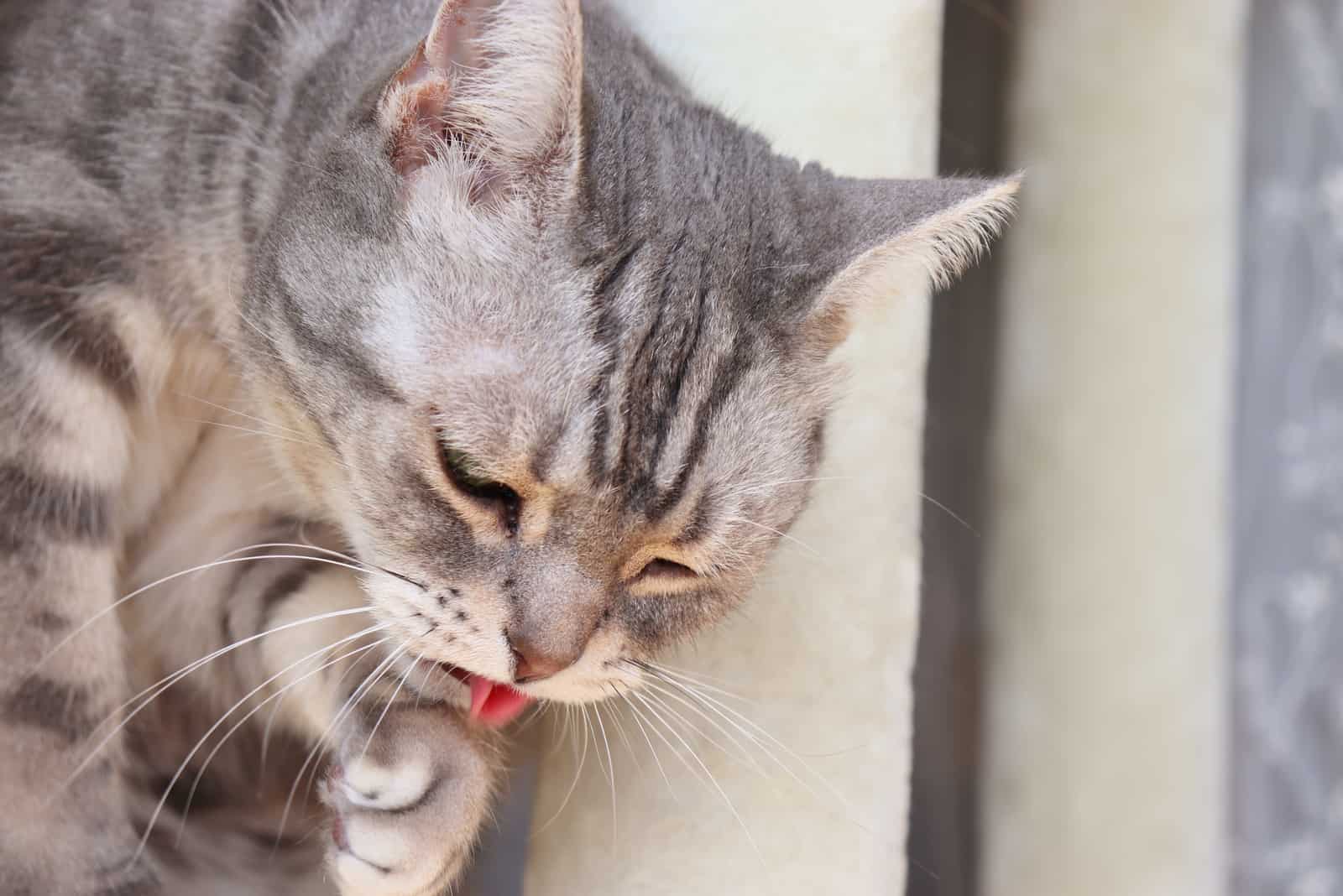
Antibiotics are specifically designed for killing one type of microorganism – bacteria. They destroy them by damaging their cell wall and preventing bacterial multiplication.
So, you can conclude that antibiotics will not be effective for:
1. Viral infections
Common viruses that infect cats are:
🐾 feline calicivirus (causes feline upper respiratory infection)
🐾 feline herpes virus (also causes upper respiratory infection)
🐾 feline immunodeficiency virus
🐾 many others
For diseases caused by viruses, antiviral drugs are needed, not antibiotics.
2. Fungal infections
Fungal infections such as ringworm infections cannot be treated by antibiotics, instead they require antifungal medicines.
Your vet can prescribe antifungal medications and ointments.
3. Allergies
Allergies don’t go away, but the symptoms can be efficiently reduced to only a minimal allergic reaction by using antihistamines and getting rid of the allergen from the cat’s surroundings. Antibiotics are not effective against allergies.
How To Know When It’s Time To Visit The Vet?
Some mild infections can be treated with home remedy antibiotics, but more serious ones absolutely cannot.
If you’ve tried a bunch of different natural remedies and you see your pet’s health is not getting better, this is your sign you need to visit the vet.
Please seek a vet’s help if your cat is experiencing any of the following:
🐾 Fever
🐾 Complete appetite loss or refusing to eat or drink
🐾 Vomiting
🐾 Having diarrhea for more than one day
🐾 Difficulty breathing
🐾 Overall lack of energy
No matter how efficient natural medicine is, there are cases where it is simply not strong enough to win the fight. This is when prescribed antibiotics need to be used.
If your doctor of veterinary medicine says your cat needs antibiotics, listen to their advice.
Doctors only give out antibiotics when their use is absolutely necessary. They are aware that frequent use of antibiotics means increasing antibiotic resistance, which is something no one wants for us or for our pets.
Antibiotics are only prescribed when the bacterial infection is serious enough that it cannot be resolved in any other way. If that kind of infection is left untreated, it can be life-threatening.
Frequently Asked Questions
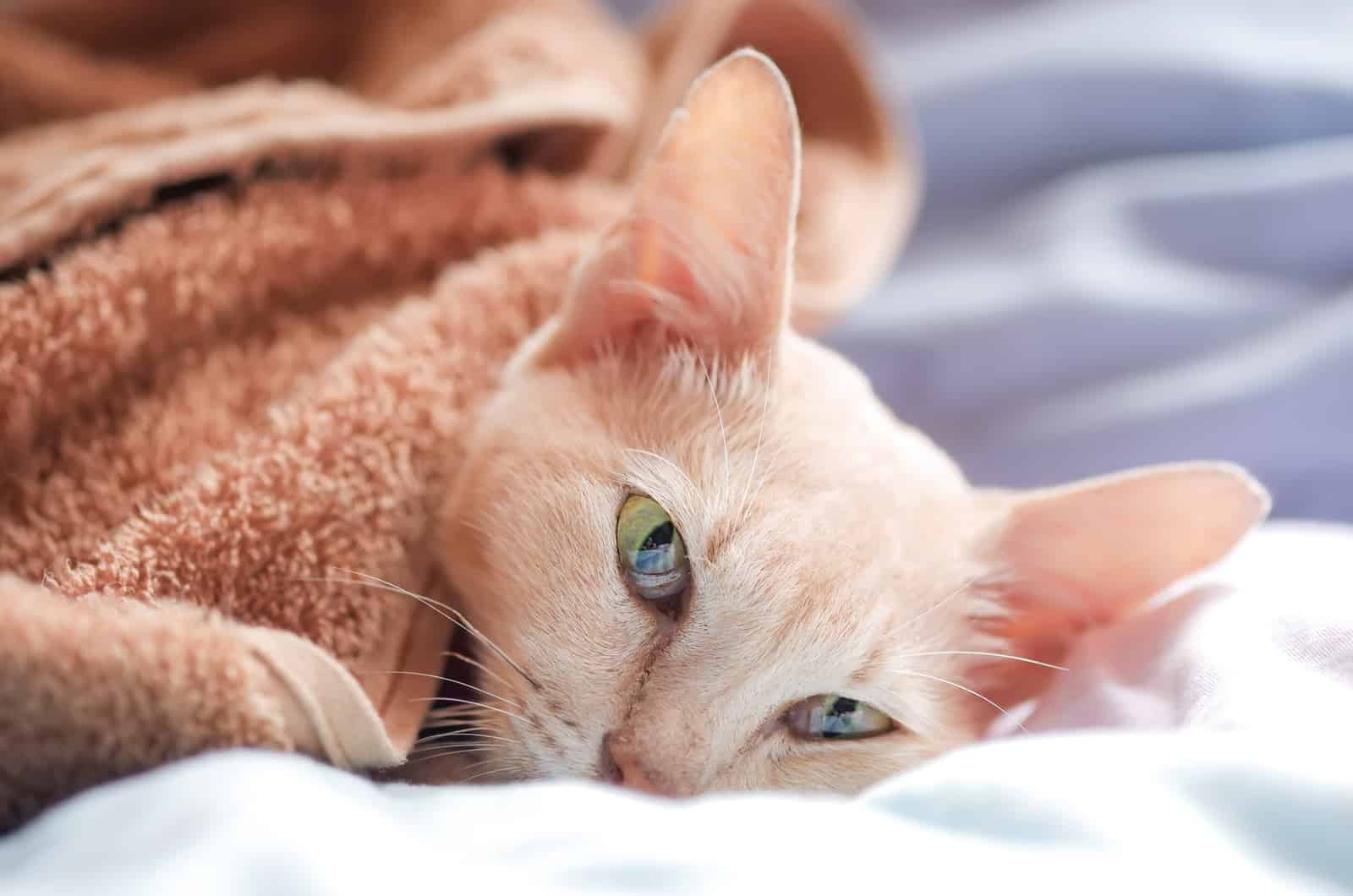
What Is An All Natural Antibiotic For A Cat?
The most famous natural substance that has antibiotic properties, which is completely safe for cats,is honey. Honey has been used as a natural antibiotic ever since ancient times and it continues to be used even today.
Natural antibiotics are a great preventative measure and are efficient in dealing with mild bacterial infections.
However, it’s important to note that natural antibiotics are not a substitute for prescribed antibiotics. Prescribed antibiotics are much more efficient and specific in their antibacterial activity, but they are not without side-effects.
What Can I Give My Cat As An Antibiotic?
There are almost a dozen known natural remedies that have antibiotic properties and are cat-safe.
These include manuka honey, echinacea, ginger, goldenseal, turmeric, chamomile, aloe vera gel, and apple cider vinegar.
Above I have explained the benefits each of the mentioned remedies offer, as well as how to use them.
There are other famous natural antibiotics, but they’re not safe for cats. For example, essential oils. They are amazing for humans, but can be very toxic for cats.
So before you say “This helped me so much, it must help my cat too!”, please make absolutely sure that the substance is completely safe for your feline friend.
What Is The Strongest Natural Antibiotic For Cats?
There is no definitive answer for this question; there is simply not enough research on the subject.
The best thing to do is to visit a vet. If your pet is not feeling well and natural home remedies are not working, that’s a sign that your cat might need prescribed antibiotics.
In Conclusion
Home remedies are not only beneficial to us humans, but to our feline pets too! Manuka honey, ginger, echinacea, turmeric, and chamomile are only a couple of the natural home remedy antibiotics for cats.
All of them have great antibacterial properties that can be used as a preventative measure, and to treat mild bacterial infections. Using natural home remedies is recommended, although there is always a “but…”
While there are natural home remedy antibiotics for cats, that does not mean they’re 100% efficient against all bacterial infections. Serious bacterial infections need to be treated according to your vet’s guidelines and that will usually require prescribed antibiotics.
Do not worry, your cat will be perfectly fine either way! Just follow your vet’s advice and monitor your cat’s health (and don’t forget the cuddles!).
Related Articles
My Cat Keeps Sneezing But Seems Fine – What Should I Do?
Your Cat Sounds Congested But No Discharge? All You Have To Know

